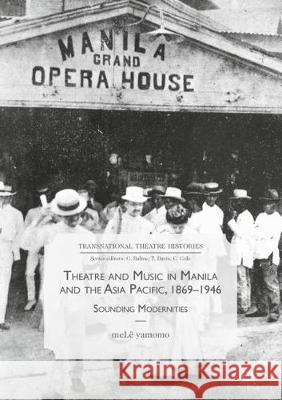Theatre and Music in Manila and the Asia Pacific, 1869-1946: Sounding Modernities » ksi─ů┼╝ka
topmenu
Theatre and Music in Manila and the Asia Pacific, 1869-1946: Sounding Modernities
ISBN-13: 9783319691756 / Angielski / Twarda / 2018 / 267 str.
Kategorie:
Kategorie BISAC:
Wydawca:
Palgrave MacMillan
Seria wydawnicza:
J─Özyk:
Angielski
ISBN-13:
9783319691756
Rok wydania:
2018
Wydanie:
2018
Numer serii:
000793505
Ilo┼Ť─ç stron:
267
Waga:
0.49 kg
Wymiary:
21.01 x 14.81 x 1.75
Oprawa:
Twarda
Wolumen├│w:
01
Dodatkowe informacje:
Wydanie ilustrowane











